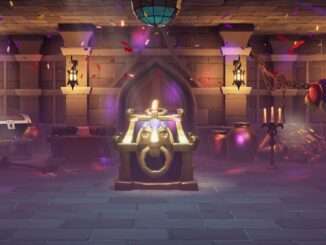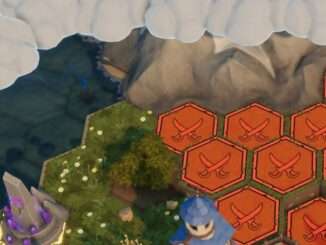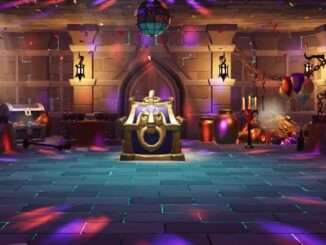
For FTK1 veterans, a lot of the mechanics carry over. As folks have said, Ironoak doesn’t need to fix a winning formula. However, I wanted to create a general refresher for veterans and a basic guide for new players. A lot of this could seem commonsensical, but I still think it’s worth putting in writing.
General Beginners Guide
Movement Economy
The faster you move, the easier the game will be. This held true for FTK1 and definitely still holds true in FTK2. That compass that you picked up with +1 movement is one of the most important items in the game. More movement rolls enables flexibility and, most importantly, speeds up your progression.
Moreover, that compass can be traded between characters between turns, so one compass in a land boat or “regular” boat equates to +1 movement for the entire party, so long as you’re willing to micromanage trading that compass between characters before their respective turns (The same applies to health regeneration gear ~ that +1 health per turn pair of gloves can mean +1 health per turn for the entire party if you have the patience.).
Speaking of boats, since the vehicles allow you to transport your entire party between their respective turns, both land boats and boat-boats should be exploited as much as possible, especially their “pick up party” functions. The range on the pick up function is kind of overpowered in my opinion, but so long as it has a four tile radius, definitely take advantage of it.
Also, since focus can be spent on movement, whenever you could have additional focus leftover at the end of a turn (a scholar with a prospective refocus with a full pool of focus or a nearby monument with a full focus refill, etc.), burn it on movement. This can be especially exploited by meditating your scholars who typically have large focus pools. For a fraction of the price of a teleport scroll, your scholar can basically meditate travel from town to town where needed. The devs limited each character to one meditate per turn per town for a reason. Leverage this whenever you can.
Gold Management
Basically, the more frugal you are, the less painful your experience will be. It’s almost always better to save gold for more permanent upgrades; e.g., buy every candy that you can afford. That +1 physical damage on your hunter bought in the first 10 turns (or obtained through loadouts) could mean the difference between one of your characters getting 100-zeroed in one of the mission’s final encounters. Outside candies, the only items worth buying are those that upgrade primary stats and items that upgrade a character’s main defensive stat, such as an evasion item with awareness that would provide additional evasion for your hunter.
Armor and resistance can be maximized to a level that they can negate most of their respective damage types by the end of a campaign mission if min-maxed (e.g., dumping all of the armor gear and salty jawbreakers on your blacksmith). Evasion is kind of broken by the end of a campaign mission if min-maxed, so targeting one-two characters for evasion is definitely optimal. Additionally, do not underestimate the importance of a character’s core stat: i.e., the stat that determines success for their respective weapon’s rolls. Actually hitting targets is almost always better than that extra +attack or +magic damage; you’ll never have enough focus.
Finally, I’ve had the best experience reserving one character for gold multiplication duty, both in FTK1 and FTK2. Ideally, this responsibility would given to the bard, since +% gold affixes tend to be tied to +talent gear. However, since bards have not yet been implemented in FTK2, the next best option would be either a scholar or pathfinder since they have the highest default talent stats.
Don’t underestimate the pathfinder’s scouting trait. The ability to find POIs fast can speed up your progression tremendously. Moreover, currently, there doesn’t seem to be any item in the game that provides this pathfinder trait. (Also, having a dedicated +talent character gives you more flexibility in gearing and a higher chance of passing talent tests).
The Power of Shock
So, as mentioned, bards have not yet been implemented. Therefore, distract, the ability to cancel an enemy’s roll, does not seem to be available yet. As such, the only way to guarantee the cancelling of an enemy’s roll is through shock (daze can be a close substitute, but it’s still less reliable than shock). Shock prevents any susceptible monster from rolling perfect attacks. Also, it can completely shut down many of the enemies that you will encounter.
It and wet (because wet enables shock-immune enemies to be susceptible to shock) are probably the strongest status effects in the game currently. If we had a source of distract, this discrepancy would be less extreme, but until bards are implemented, shock is probably the most powerful tool at the player’s disposal. In short, exploit shock whenever you can; if you can’t alpha strike the enemy, shock is usually the next best alternative, unless you have a reliable source of stun, but most enemies that you’d want to stun are immune to it.
Any character can be reserved for this role, but characters with high speed with a one-two roll shock are usually best because you’re more likely to benefit from shock in your first turn in a fight.





Be the first to comment